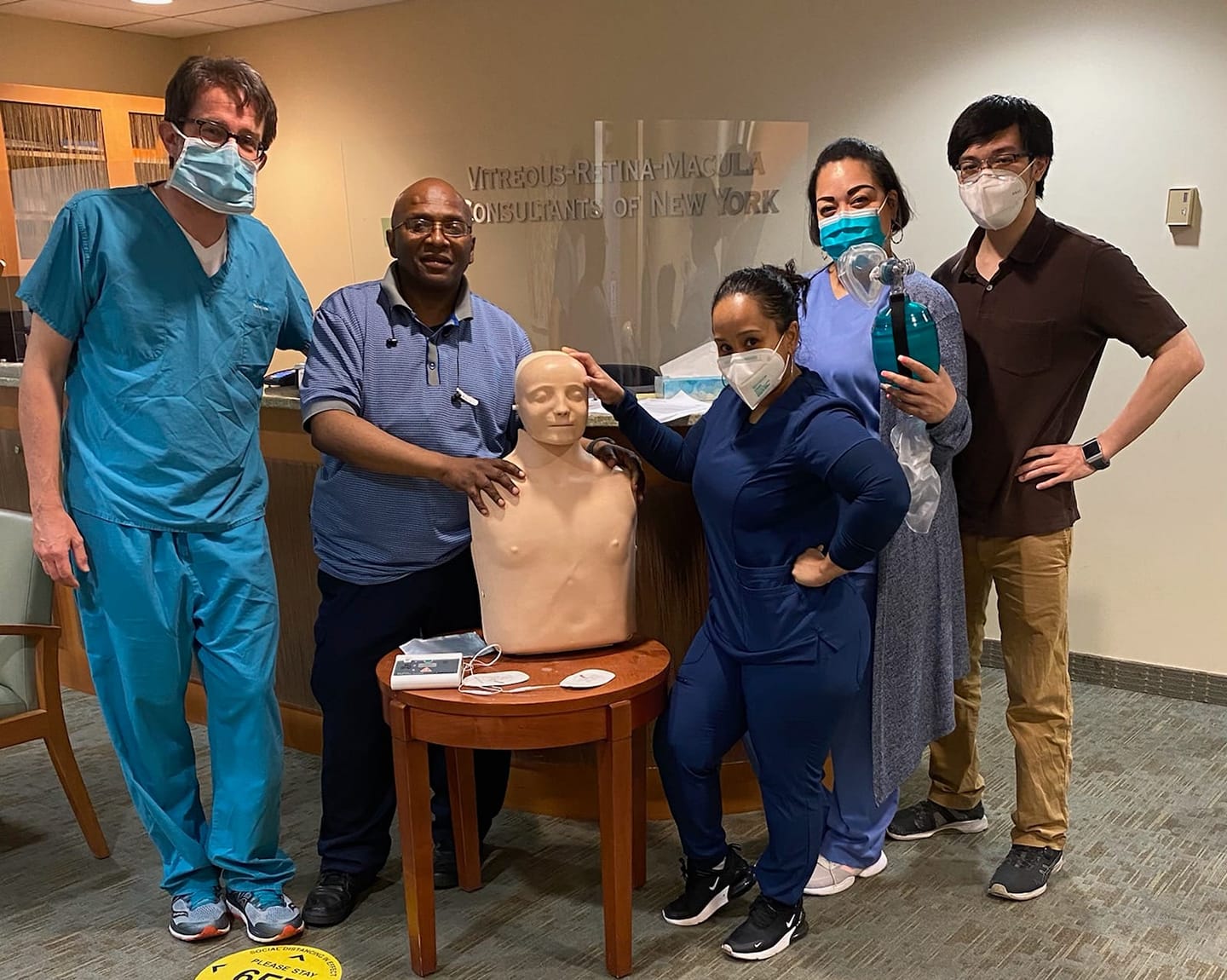Age-Related Macular Degeneration

Produktbeskrivelse
Early Macular Degeneration
Many people with macular degeneration experience minimal vision loss during the early stages of the disease. For most people, macular degeneration does not become vision impairing. During this stage, the transport of wastes and nutrients by the RPE has slowed down. As a result, waste builds up under the retina and forms yellowish deposits known as drusen.
An ophthalmologist examining a patient at this stage may see drusen, although no symptoms may be present or develop later. If the doctor sees drusen, the patient will be monitored. In most cases, the disease will not progress to vision loss, although some patients do experience vision loss with drusen. Many patients over 60 have some drusen.
There are two types of AMD:
Macular degeneration may progress into dry (atrophic) macular degeneration or wet (exudative) macular degeneration.
Dry AMD is the initial stage of the disease. This condition rarely leads to severe vision problems or blindness. Visual changes often lead to the loss of function, which may cause a blind spot or scotoma in the central vision.
Wet AMD arises from Dry AMD and is characterized by the new abnormal blood vessels that grow under the retinal pigment epithelium, under the retina, or even within the retina. If untreated, Wet AMD may cause blind spots and, in severe cases, lead to vision loss.
Read more: https://www.vrmny.com/conditions/age-related-macular-degeneration/

